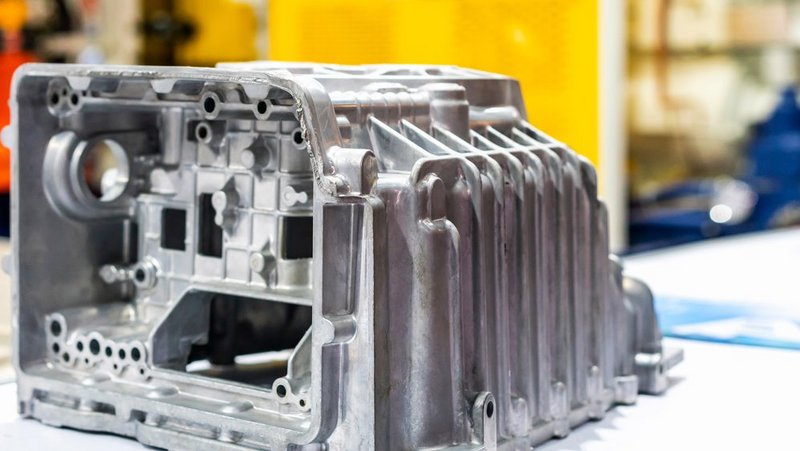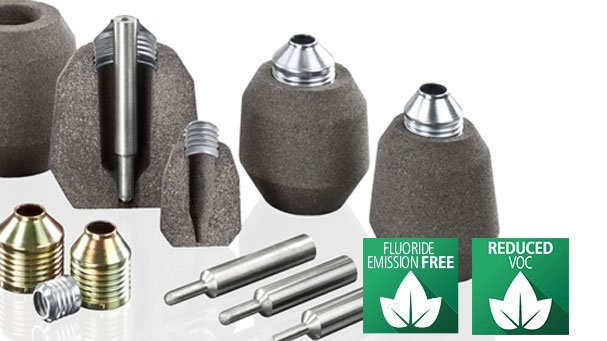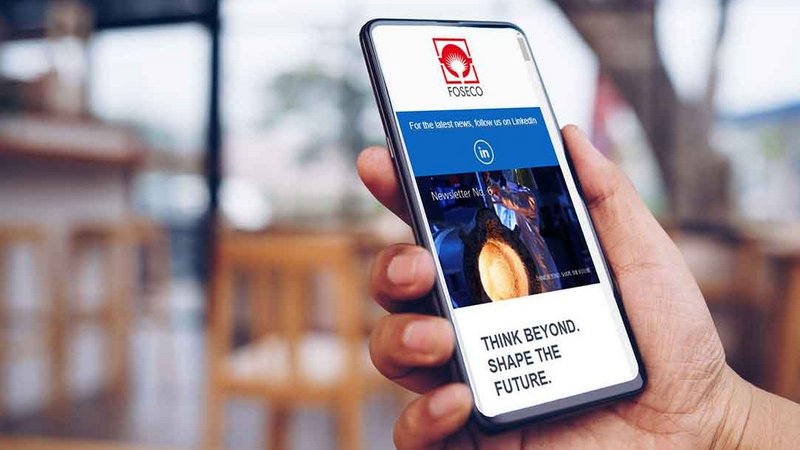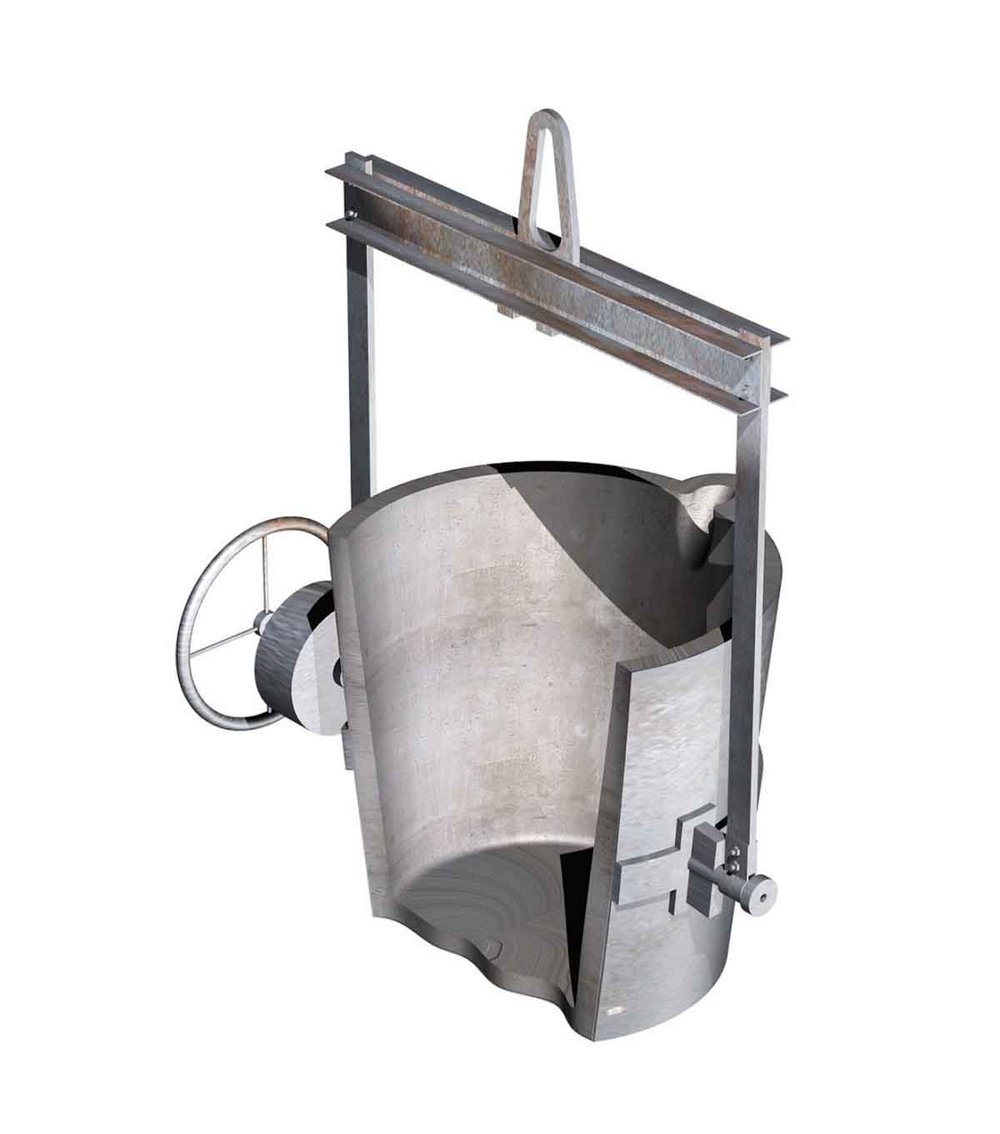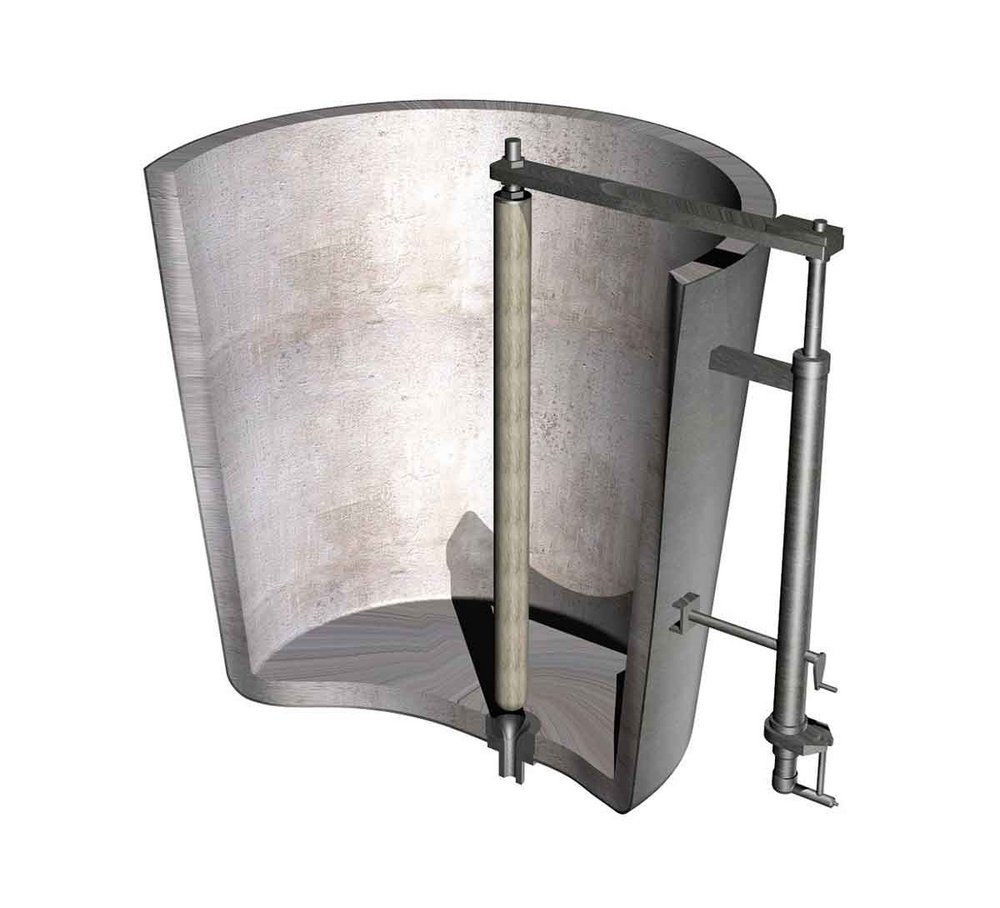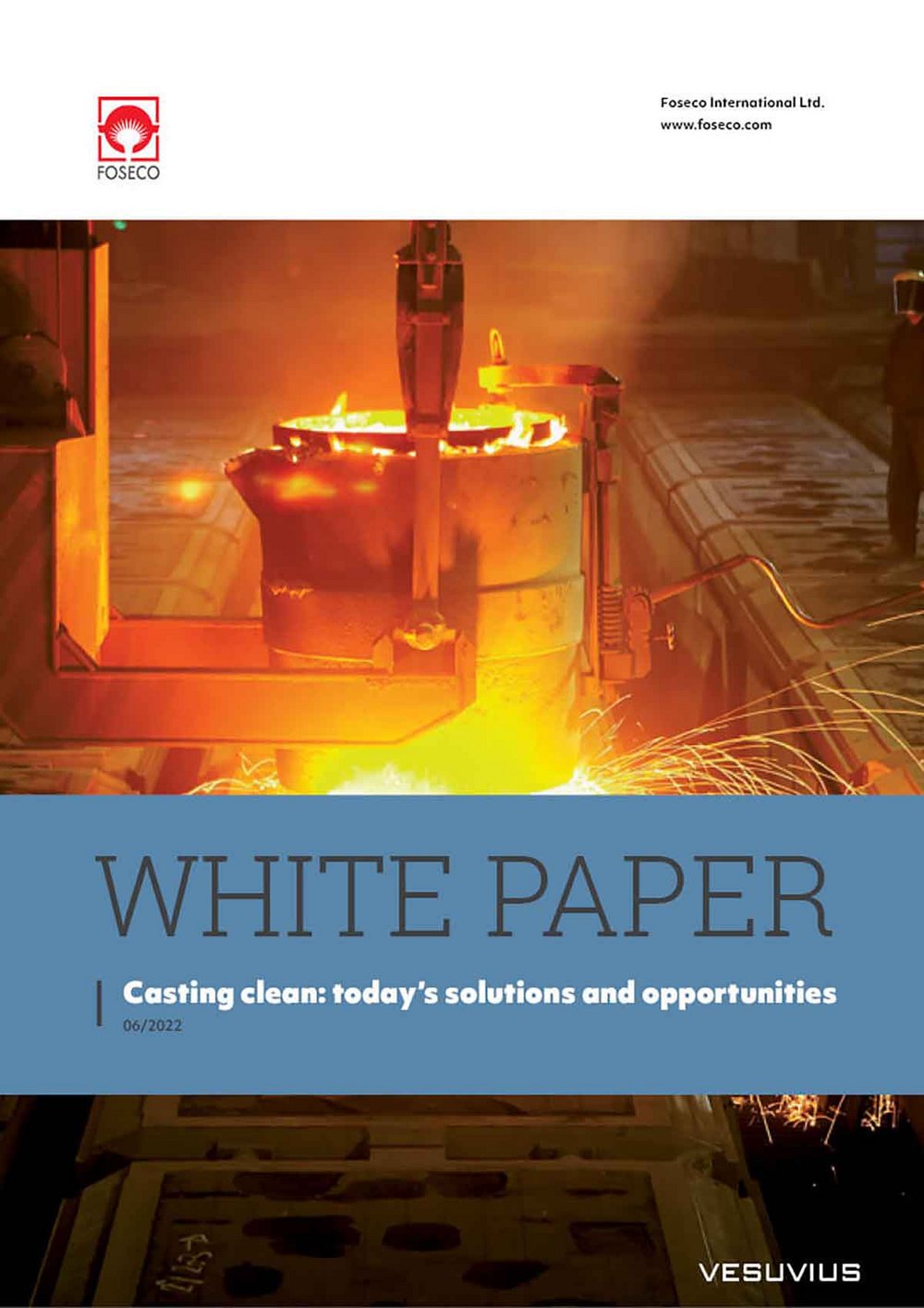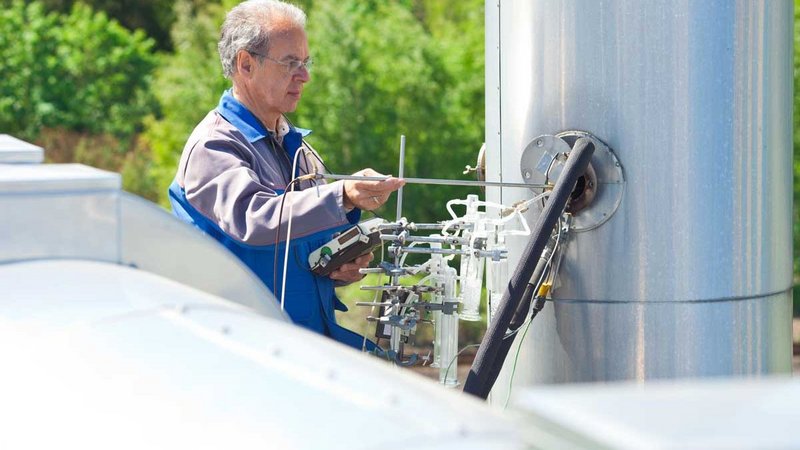
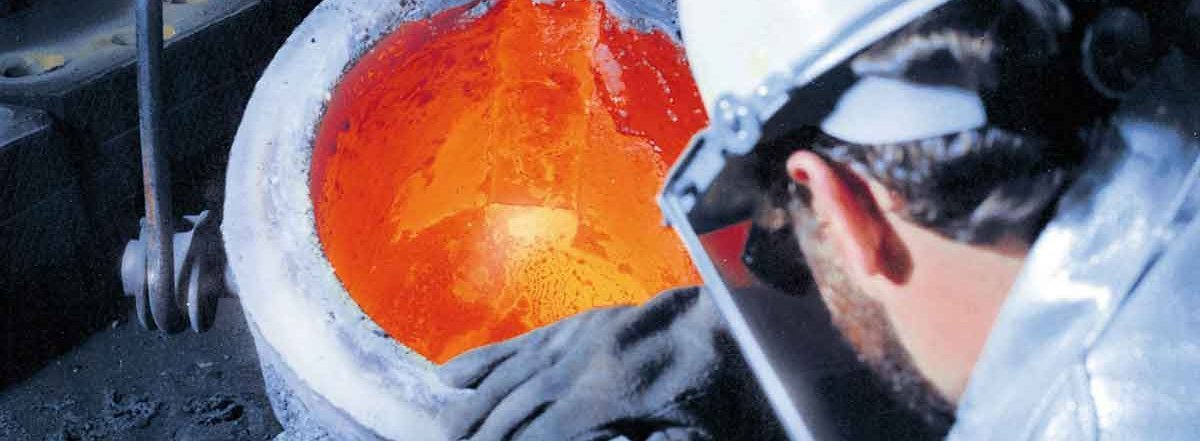
Ladle linings - Advanced refractory solutions for foundries
- Excellent insulating properties
- Molten metal temperature control
- Reduced labour cost and lower energy cost
- Safe and clean working environment
- Improved metallurgical control
- Improved productivity
Dense ladle linings for steel and iron ladles
CRITERION and DURAFLO are a range of low cement and high strength refractories, suitable for iron and steel application. CRITERION is applied by mixing with the optimum amount of water and vibrocasting behind a former. DURAFLO is applied in a similar way, but due to the self-flowing properties, no vibration is required.
TRIAD range of cement-free, high strength refractories, is ideally suited for iron foundry lining applications. TRIAD is applied by mixing with water and casting into place behind a former with vibration.
Benefits of TRIAD
- Easy to install
- Short and simple drying schedule
- Long shelf life
TRIAD Z is a range of no cement separate binder technology castables. The key benefit of the TRIAD Z range is the lack of chemically combined water as compared with conventional and low cement castables. This means that all water is held physically in the material and can be removed much faster making dry out faster and less potentially damaging. Fast dry out is critical in foundry and can be completed in 24 to 48 hours.
TRIAD Z 118 is a no cement castable based on high purity alumina (82%) with a graphite addition for superior slag resistance with iron grades. Applications is mainly for iron treatment and transfer ladles.
TRIAD Z 160 is a no cement castable based on high purity mid alumina (66%) aggregate with superior erosion resistance and thermal cycling ability. Application is mainly for transfer iron ladle and small steel ladles.
TRIAD Z 230 is a no cement castable based on ultra-high alumina (94%) aggregate with superior slag and abrasion resistance. Application is mainly for large steel bottom pour ladles (max service T° up to 1750 °C)
Mouldable refractories
DURACRETE, BLU-RAM and X-9 PLASTER phosphate bonded plastics can be applied by hand or pneumatic tools according to the application and consistency of the product.
Foseco’s mouldable products are ideal for application to launders, ladles, spouts and general refractory repairs. These materials are generally easy and quick to apply whilst offering excellent refractoriness, durable performance, resistance to slag and metal, and ladle cleanliness.
KALTEK low density ladle lining systems that require almost no drying and pre-heat
KALTEK boards preformed ladle lining are predominantly applied to steel foundry ladles up to 25 tonnes in capacity. Foseco provides 2 KALTEK board systems. A single life and a multilife system (used for up to 5 heats).
KALTEK ISO powder refractory is used in iron and steel applications for ladles up to 15 tonnes. KALTEK ISO is cast using a former as a dry powder and hardened using heat.
KALTEK benefits:
- Increased insulation
- Improved temperature control
- Easy installation and removal
- Better energy efficiency
- Clean ladle system
Casting clean: today’s solutions and opportunities
Learn more about improving casting quality in steel casting applications in our white paper Casting clean: today’s solutions and opportunities. This paper cuts through the noise and brings clarity to the clean steel debate: an overview of common casting defects is followed by a detailed review of the technologies currently on offer to reduce casting defects and improve cast quality at each stage of the steel casting process.
Ladles and launders in aluminium foundries
TRIAD 45AL low density no-cement castable has exceptional resistance to aluminium wetting and penetration and is very user-friendly. It is easy to mix, easy to install, easy to dry and easy to break out.
INSURAL ATL ladle linings are precast and supplied fully fired. The non-wetting properties ensure that aluminium skull formation is reduced and simple to remove, preventing cross contamination between metal transfers. Oxide build-up is avoided, reducing the risk of hard inclusions in the melt.
ENERTEK ATL ladle linings offer an alternative technology to castable lined ladles for internal and external melt transfer and over-road “hot charger” transfer ladles. Extensive customer testing demonstrates their ability to deliver reduced melt temperature loss, superior melt cleanliness, easy ladle maintenance, and extended ladle life.
The use of CERAMOL 258G or TERRACOTE 7667 refractory coatings can further improve the ladle lining cleanliness.
In non ferrous foundries, the transfer of molten metal from a ladle or a dosing furnace to the mold requires a transfer launder. Transfer launders are expected to transfer the metal without affecting its metallurgical cleanliness, to maintain the temperature of the molten metal, and to be cost effective. INSURAL launders are insulating preformed shapes and ready for installation. The material is highly resistant to changes in temperature. Wetting by molten aluminium is extremely low.
Continuous or intermittent casting operations of non-ferrous metals and alloys needs effective ceramic products for controlling metal flow. To that end, ZYAROCK casting and pouring accessories have been developed using unique technologies to match the highest quality requirements.
The tilt casting process needs a pouring basin to fill the mould. When lining a pouring basin with an INSURAL insert less heat loss, a consistent pouring temperature can be achieved resulting in improved yield and reduced reject rate of castings. Several designs of pouring basin were reviewed by flow simulation to optimise ladle shape before manufacture.
Repair and maintenance for ladles in aluminium foundries
QUICK FIX ALUGARD EXP is a phophate bonded castable with 85% alumina with excellent non -wetting characteristics.
X-9 PLASTER is a thermally stable, putty consistency refractory, suited for all ferrous and non ferrous applications providing excellent refractoriness.
INSURAL insulating pastes are hardened by heat and are used especially for aluminium and zinc. They are self-adhesive, ready-to-use and free of classified synthetic fibres.
BLU-RAM phosphate bonded mouldable refractories are based on mullite and can be used as a repair material.


